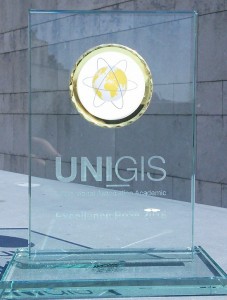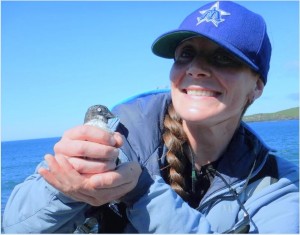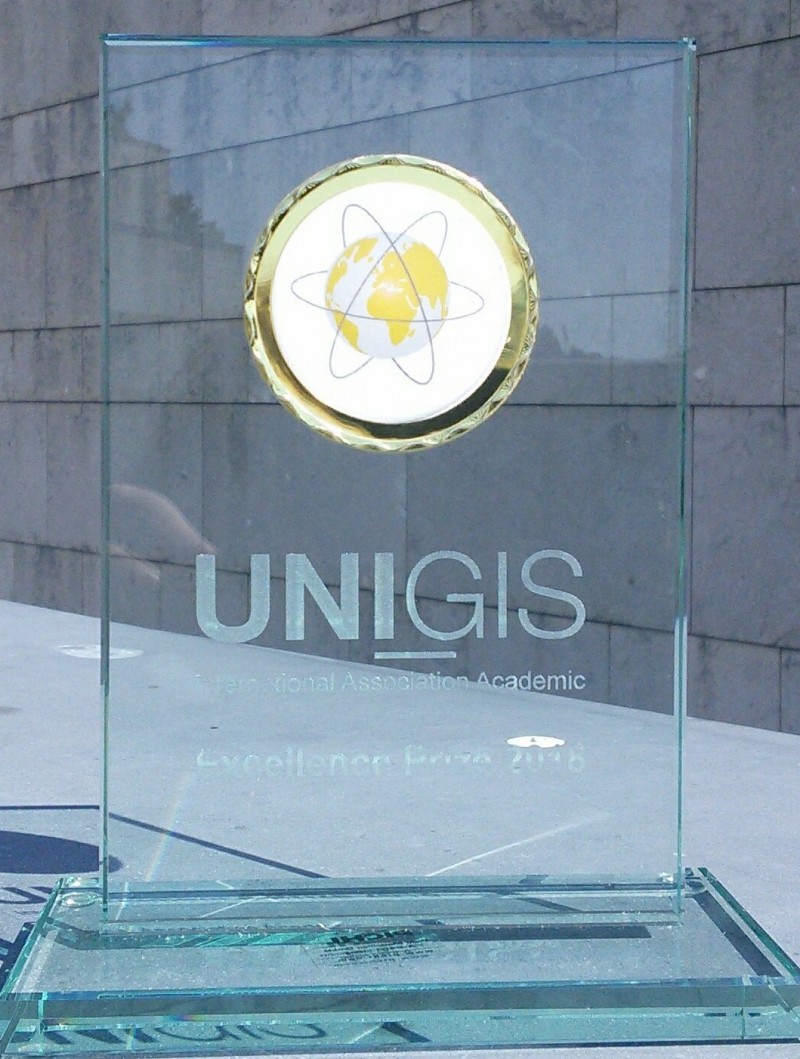 Every year, since 2008, the UNIGIS International Association (UIA) awards the Academic Excellence Prize to students having submitted the best MSc theses (or paper) during the previous academic year, accepted for graduation at one of the UNIGIS partner universities worldwide.
Every year, since 2008, the UNIGIS International Association (UIA) awards the Academic Excellence Prize to students having submitted the best MSc theses (or paper) during the previous academic year, accepted for graduation at one of the UNIGIS partner universities worldwide.
In this year’s competition six excellent, high-quality MSc theses were considered by the UNIGIS International Association Review Board. The panel decided to make three awards, including one winner, one runner-up and one third place of the Academic Excellence Prize for 2022:
The Winner of the Academic Excellence Prize 2022 is Artur Jorge Abreu Varanda, from NOVA Information School – Universidade Nova de Lisboa (NOVA IMS, Portugal), his outstanding Master Thesis “ORÁCULO. Detection of Spatiotemporal Hot Spots of Conflict-Related Events Extracted from Online News Sources” was unanimously nominated for the first place.
When asked about winning this prize, Artur stated that he is “greatly honoured to have been awarded the UNIGIS Academic Excellence Prize 2022. As a Portuguese Army officer, I have known since my first days in uniform the pivotal role that maps play in the military context, but it was the Master’s in Geographic Information Systems and Science that taught me exactly how essential spatial information is in most fields of human endeavour. Maps are and have always been regarded as fundamental tools for decision-making, so it is only natural to expect that better maps – with better spatial resolution, better accuracy, and faster updates – will lead to better decisions. The evolution of geospatial technologies allows this ever-improving representation of ever-smaller features, but there is another, slightly less evident possibility afforded by the combination of Geographic Information Systems and Machine Learning: the discovery and representation of large-scale patterns and trends from a set of small-scale elements – even if the spatial, temporal, and thematic resolutions and precisions of those elements are as limited as those of conflict-related events extracted from online news sources.“
Additionally, he attributed this Excellence Prize “due to a great number of individual contributions. I am indebted to every person and organization that provided the tools, advice, and support necessary for me to complete my thesis, but I would like to single out my advisors and course coordinator at NOVA IMS, Professors Victor Lobo, Carina Albuquerque, and Marco Painho, and Professor José Borges from the Academia Militar Research and Development Centre for their crucial help in realizing my original vision.”
 The runner-up for the Academic Excellence Prize 2022 is Bryna Michelle Mills, from University of Southern California (USA), with an excellent work entitled “An Exploration of the Spatiotemporal Distribution of Snow Crab (Chionoecetes opilio) in the Eastern Bering Sea: 1982 – 2018” .
The runner-up for the Academic Excellence Prize 2022 is Bryna Michelle Mills, from University of Southern California (USA), with an excellent work entitled “An Exploration of the Spatiotemporal Distribution of Snow Crab (Chionoecetes opilio) in the Eastern Bering Sea: 1982 – 2018” .
Bryna highlighted that she’s “sincerely honored to receive this prize and recognition for my work. I am also grateful, and hopeful, that the recognition may promote further research of the snow crab fishery in the Eastern Bering Sea, as well as the amazing capabilities of GIS and spatial analysis in the field of ecology and fisheries science. Thank you!”
As for the third place, it was awarded to Francesco Collivignarelli from University of Salzburg (Austria) with his work named “Surface water mapping to support humanitarian action. A South Sudan case study”.
Finally, Francesco said that “Ranking third in the Academic Excellence Prizes was unexpected for me, and winning such an important prize makes me feel proud. I see the award as the culmination of an excellent study path with UNIGIS, and I would like to share the credit with my supervisors and the entire staff of the Salzburg branch. It is my intention to donate the amount received to MSF Austria, with whom I collaborated during the writing of the thesis. Beyond that, I hope that my work as an expert in remote sensing can contribute to improving the GI workflows of MSF and other organizations.”
Congratulations to all winners!

